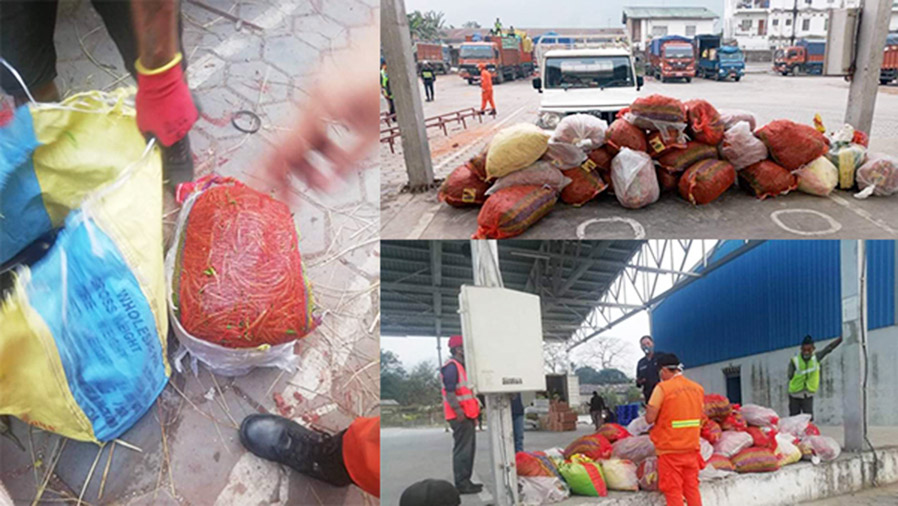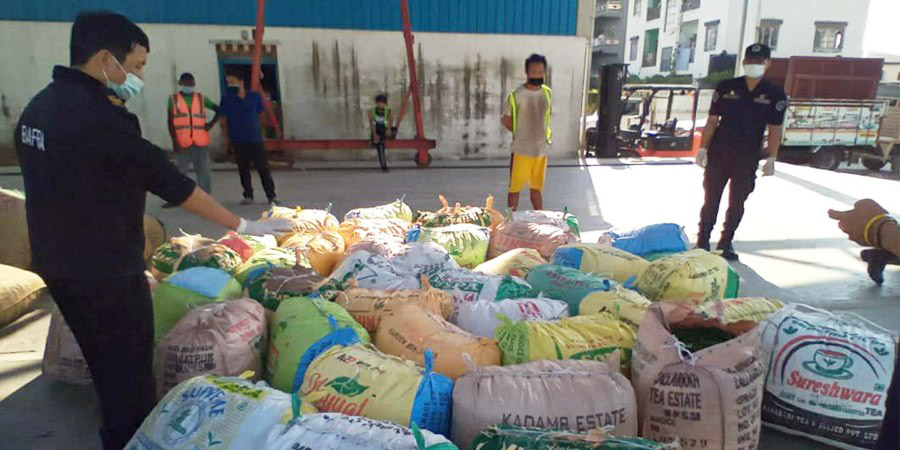
Bhutan imports fruits and vegetables from India, especially in winter due to limited local production. The Bhutan Trade Statistics show a steady increase in these imports over the years. As imports have increased, so have concerns about pesticide risks in imported produce. However, according to the Bhutan Food and Drug Authority (BFDA), thorough testing and regular monitoring at checkpoints ensure consumer safety and compliance with imported fruits and vegetables.
 Most people BBS talked to said the problem isn’t where the food is coming from but how it’s grown or processed before it reaches the country.
Most people BBS talked to said the problem isn’t where the food is coming from but how it’s grown or processed before it reaches the country.
Due to concerns about pesticide risks, they said they prefer locally grown fruits and vegetables. However, during the off-season, they have no alternative but to consume imported produce.
“Organic vegetables from Bhutan are better because we know how they are produced. However, with imported produce, we don’t know what kind of chemicals they use. That’s why, I prefer local vegetables and fruits,” said Tshering Choden, a customer in Thimphu.
“People prefer local vegetables most of the time as they are organic and free from chemicals. Local vegetables are normally more popular. However, people buy imported produce during the off-season as there is no alternative. But people mostly prefer organic ones,” said Kinley Pemo Lepcha, a vendor in Thimphu.
“For instance, fruits like apples and pears with stickers are often treated with chemicals. These imported fruits are sold in the country. However, locally produced fruits and vegetables in Bhutan are free of chemicals, not injected and clean, making them a better choice. That’s why our local fruits and vegetables are good,” said Norbu, another customer.
In an email response, the Bhutan Food and Drug Authority (BFDA) confirmed that the fruits and vegetables imported into Bhutan are tested and monitored for pesticide residue.
This ensures they meet safety standards before reaching consumers, addressing health concerns about pesticide exposure.
They also conduct random testing and analysis of samples from incoming consignments to ensure that there are no pesticide residues in fruits and vegetables and that national and international standards are met.
According to BFDA officials, they have never found pesticides in imported fruits to date. However, they had to discard chillies several times due to pesticide presence.
According to the Bhutan Trade Statistics, more than Nu 320 M worth of vegetables and over Nu 175 M worth of edible fruit and nuts were imported in the first quarter of this year.
Sanagy Chozom
Edited by Sonam Pem









